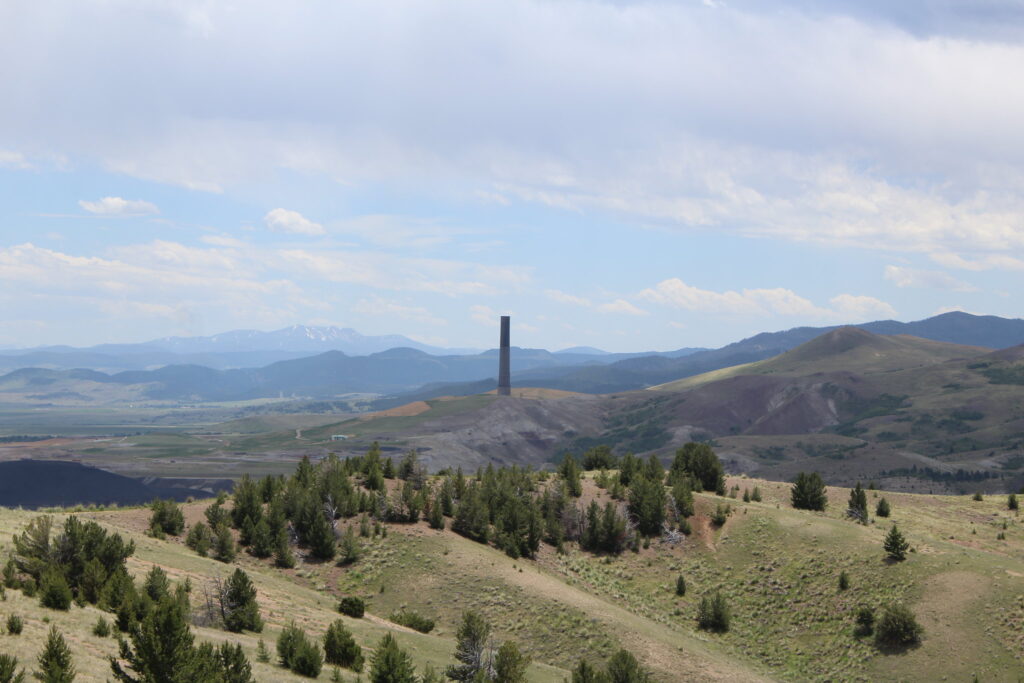This piece was originally featured in the Montana Standard.
Montanans are no strangers to mining—the industry has been a key economic driver throughout our state’s history. When the Anaconda Copper Mining Company completed a 585-foot tall smelter stack in 1919 to process the copper being mined in the Butte area, the towns of Anaconda and Opportunity grew out of the jobs created by the smelter. Today, the towering brick structure is even recognized as a Montana state park.
But the economic boom came with an environmental bust as the smelter dumped tons of toxic metals, arsenic, and lead on its neighbors for nearly 100 years. It reached a point where the Environmental Protection Agency designated 300 square miles surrounding the smelter as a Superfund site in 1983 because of the extreme pollutant accumulation.
Even as the Atlantic Richfield Company, the current owners of the smelter, complete restoration work in the Superfund area to the extent required by federal law, property owners continue to experience the negative environmental and health impacts of the smelter. It has become a legal tangle over whether or not property owners can uphold their property rights and have the polluter restore their properties.
On December 3, the Supreme Court of the United States will hear the case Atlantic Richfield Co. v. Christian to decide whether property owners in the surrounding area can sue the smelter owners to restore their properties to pre-smelter conditions. At its core, this case demonstrates how crucial secure property rights are in discouraging harmful pollution.
Montana law protects a landowner’s right to have their property protected from outside pollution and restored when contamination occurs. Common law—the rules and traditions embodied in court decisions—reflects the view that free people must take responsibility for their actions and must be held accountable. This means that the landowners have the right to their backyards uncontaminated by the smelter toxins, and they can hold Atlantic Richfield liable for pollution damages.
Secure property rights discourage environmental damage by forcing would-be polluters to internalize the harms imposed on neighboring property owners. As PERC and the Pacific Legal Foundation explained in an amicus brief we filed with the U.S. Supreme Court in support of the landowners, property rights enable anyone whose property is damaged by another to demand that property is restored. Where property rights are insecure and neighbors have no mechanism to stop a polluter from causing environmental harm to their property and hold the polluter liable for the damage, the polluter will have little reason to avoid or reduce these harms.
Despite Montana’s and the U.S. Constitution’s protections for property rights, Atlantic Richfield and the EPA maintain that the company can’t be required to pay for any restoration work beyond what the EPA ordered under Superfund. The company is arguing that the rights of the landowners surrounding the smelter are voided by federal law because any additional work would “conflict” with the EPA-approved plan.
Superfund, however, doesn’t write away Montana landowners’ property rights. The law states that “nothing” in it “shall affect or modify in any way the obligations or liabilities of any person under other Federal or State law, including common law[.]” It is quite clear that even with Superfund, the landowners still have the right to sue polluters for the damage done and Congress did not disturb that right when it enacted Superfund.
Secure property rights are crucial in protecting individuals against pollution. In Atlantic Richfield Co. v. Christian, the Supreme Court should protect the landowners’ property rights and allow the lawsuit to move forward in Montana courts.





